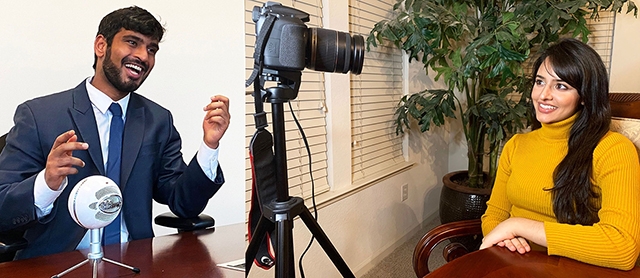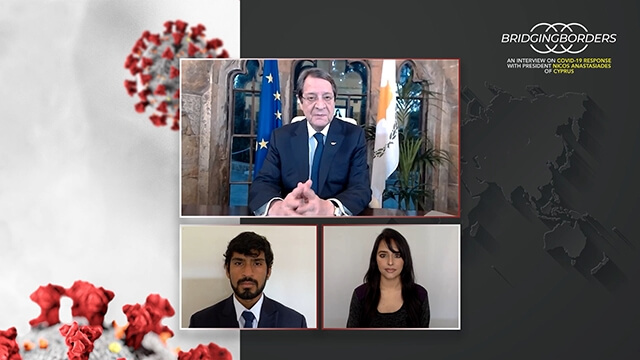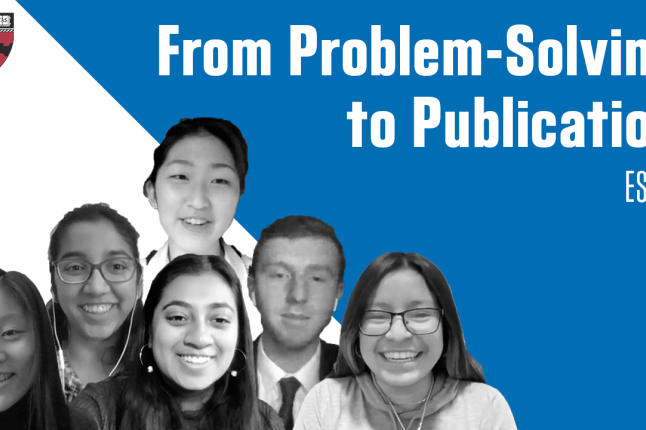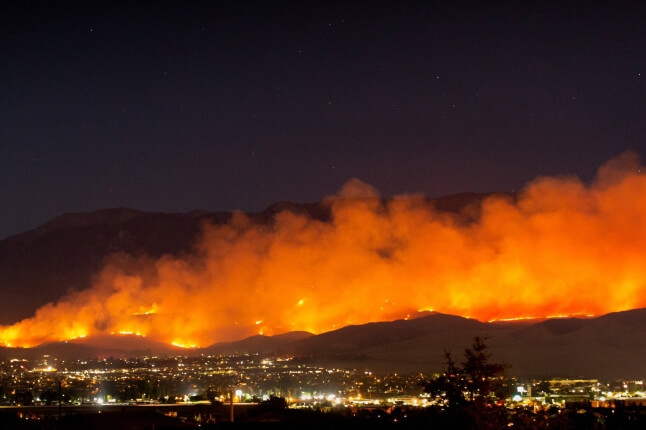News
Sai Rajagopal and Henna Hundal are co-hosts of The Bridging Borders Project, an online show featuring interviews with presidents, prime ministers, and other world leaders about their responses to the COVID-19 pandemic.
As Sai Rajagopal was preparing to leave Harvard in March after the University’s decision to “de-densify” the campus to prevent the spread of COVID-19, he began researching how the pandemic was being handled in his native Canada.
“I noticed that in Canada they were implementing stricter lockdowns and achieving better epidemiological outcomes than in the U.S. I wondered, what if we could bring some of these other countries’ COVID-19 responses to American listeners so they could see for themselves what is working and what isn’t,” said Rajagopal, who earned A.B. degrees in biomedical engineering and women, gender, and sexuality, and an S.M. in mechanical engineering at the John A. Paulson School of Engineering and Applied Sciences. “I thought if we could share what was occurring in other countries, we could achieve better cross-talk and policy outcomes.”
So Rajagopal, an incoming medical student at Harvard Medical School, and co-host Henna Hundal, A.B. ’19, a human development and regenerative biology concentrator, launched the Bridging Borders Project, an online show featuring interviews with presidents, prime ministers, and other world leaders about their responses to the COVID-19 pandemic.
They’ve conducted 15 interviews so far and plan to release one episode each week throughout the summer. Their guests so far include heads of European Union nations, South Asian prime ministers, and leaders of smaller developing nations.
“This project was born out of a conviction that global crises require global solutions,” Hundal said. “We wanted to cultivate a platform for not only the American listener to become more informed about how other countries are tackling this pandemic, but also hopefully for U.S. policy leaders to get a picture of the strategies that other countries have employed in successfully managing this crisis.”
The interviews have revealed how some smaller countries, despite having fewer resources, have been able to enact measures that reined in the pandemic’s spread, Hundal said.
For instance, officials in Bhutan, a landlocked South Asian nation with a population of around 700,000, implemented a robust contact tracing system before the pandemic had a chance to spread widely, helping them keep it in check.
“Interestingly, the prime minister of Bhutan is a trained urologist,” Hundal added. “What we’ve noticed is that in many of the countries that have demonstrated effective responses, their leaders have either had a robust background in health care, or they called in the health care experts early on. I think that speaks to the larger point of the need to involve more health care experts and physicians in policymaking.”
Hundal and Rajagopal interview the president of Cyprus, Nico Anastasiades, about his country's COVID-19 response.
Since each nation faces a host of unique challenges, the co-hosts strive to contextualize their interviews to a specific region.
In addition to asking general questions about the COVID-19 situation, death toll, and virus spread, they explore topics like how a nation can acquire appropriate materials for testing, which depends greatly on its relationship with other countries.
They’ve also been careful about whose voices they are privileging, especially when there are international disputes involved, Rajagopal said. For instance, they interviewed Lobsang Sangay, leader of the Central Tibetan Administration (CTA), because he had unique and valuable perspectives on coordinating the coronavirus response to help the Tibetan people, despite the fact that Tibet is not a recognized country.
They are also working to include more indigenous voices in the conversation, such as officials from the Navajo nation, which is experiencing a higher COVID-19 death rate than many U.S. states, Hundal added.
“Every interview really keeps us on our toes,” she said. “We started this as a platform for policy leaders and others to learn how the pandemic is affecting countries around the world, but I feel like Sai and I have walked away from every interview learning so much. It is a lot of information to digest, and we are happy to be a part of this process of learning alongside our listeners.”
The co-hosts have relied on the many contacts they’ve built through their international development work to get “face time” with the top leaders of a number of countries.
They’re excited by how quickly the project has grown and are looking forward to conducting additional interviews, and sharing more COVID-19 insights, with an even wider audience.
“I’m hoping that listeners can see that other countries are having strong coronavirus responses, and most importantly, they are working together. They are working with different countries in their region, they are informing their own public, and they are quickly bringing in health professionals early on,” Rajagopal said. “As a nation, being more outward-looking, not so inward-focused, seems to generate the most positive response to the pandemic.”
Topics: COVID-19
Cutting-edge science delivered direct to your inbox.
Join the Harvard SEAS mailing list.
Press Contact
Adam Zewe | 617-496-5878 | azewe@seas.harvard.edu




